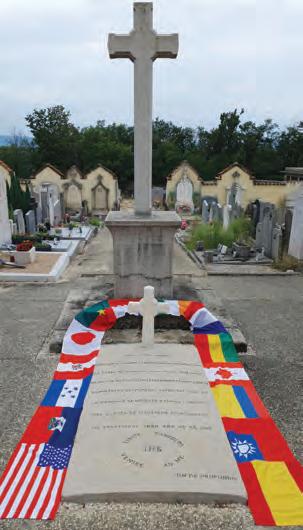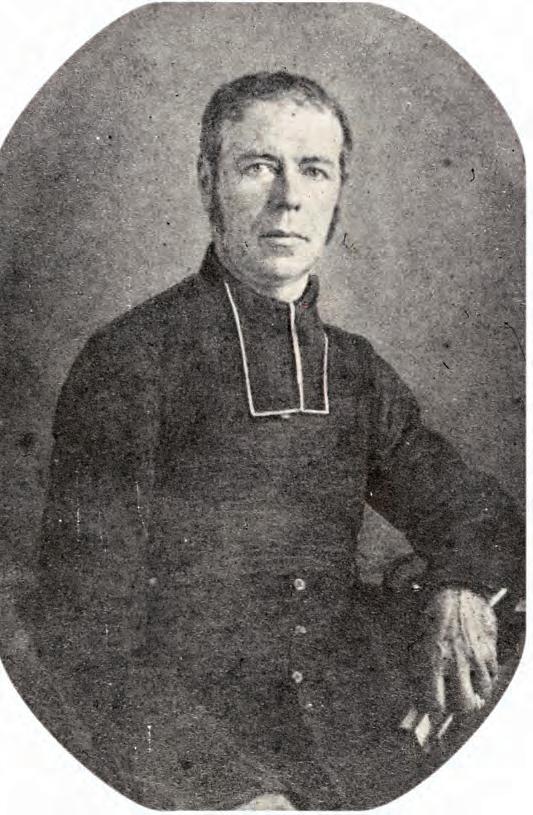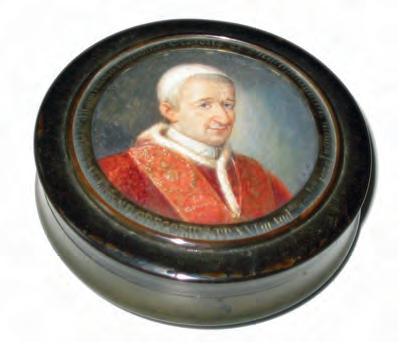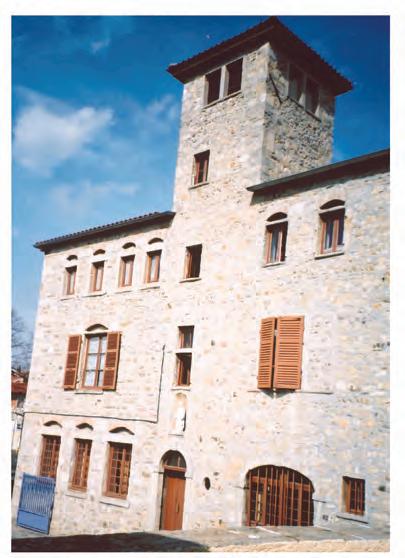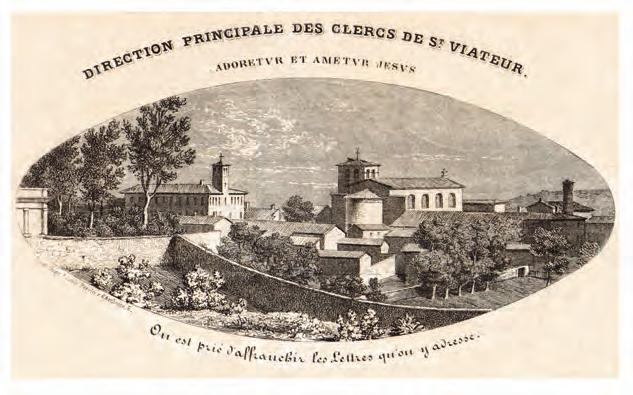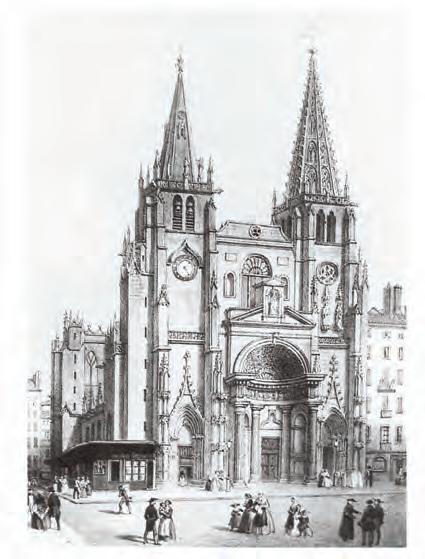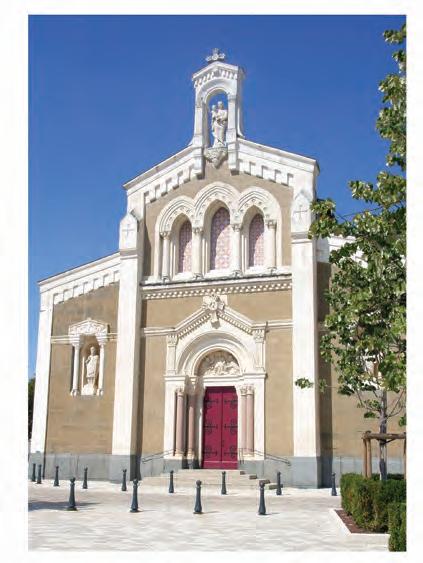
5 minute read
Louis Querbes As Seen by His Contemporaries
Ecclesiastical Comput Featuring the Dates of Easter Louis Querbes Seen by his Contemporaries
Br. Jean-Pierre Blein (1812 – 1885) had entered the Society in 1834. He founded the school of Amplepuis (1838); he helped it grow and led it until his death. He wrote this about Fr. Querbes: To his intelligence and spirit, Fr. Querbes joined selflessness, a lot of self-denial and certainly a big and rich loving heart. He loved all of his brothers as his own children to the point of becoming ill when he lost even one. That is what many found it difficult to believe. Because of his natural and extremely quick-tempered character, they inferred that he was severe and even indifferent. Those who did not know him might suspect that he was angry when he got carried away. He was more humble than disinterested. He was only the “authority figure” in his community. Everywhere else he behaved like a servant. When he visited his foundations, he was always afraid of causing some embarrassment; one would have thought he was timid. In the presence of priests, he always behaved as if he was on the same level as them and he refused any honors... He really intended to write all the usual and necessary books for a small school, but he did not have enough time to do it. Time was his only enemy. However, he created an excellent reading board that was a real little masterpiece, a math book with problems and answers and a hymnal book. He could write easily, even in verse. He could easily use perfect Latin, Greek, and Italian. He knew mathematics, especially all parts of arithmetic, commercial law, and the content of all the books from which he taught. He excelled especially in theology, canon law and Church history. When he wanted to relax, he tried to find the solution to a difficult arithmetic or algebra problem, or write a piece of poetry. He loved all areas of learning, and he was happiest when he gave lectures on primary school teaching methods to his confreres. He was overjoyed when, during exams, he found someone who could hold his own with him … Fr. Querbes’ main traits were certainly a great depth of kindness, charity, and compassion… He never despaired of anyone. Maybe his good heart sometimes allowed him to put too much trust in some who were not worthy, but who could blame him? He was poor, his brothers were poor. He was happy with one coarse habit and a small amount of food. Those who knew him will agree with this testimony: He was never concerned about what he was served for a meal…When he was thinking of creating his institution, Fr. Querbes knew he would have to give up any advancement in the ministry which would have been rightfully due to him thanks to his talents and gifts, and he wholeheartedly accepted tiredness, the worries and the small disappointments that he had to endure. Who would have the courage to count as nothing this self-denial and sacrifice?
Advertisement
Br. Charles Saulin (1821 – 1912) made his profession in 1841. After teaching in different schools with competence and spirit, he became the treasurer for the Province of Vourles, then the visitor for the three French provinces, and novice master. Then he spent six years in America (1887-1893) mostly in the novitiate in Chicago. Despite having an unattractive physical appearance from a fall during his childhood that left him with a spinal cord curvature, he was a real busy bee. He wrote this about Fr. Querbes: Rather tall, but thin. When he was about forty, he began to become overweight which caused him to be tired at the end of days. He had a large forehead with receding hair, grey, lively and penetrating eyes, a nose that was a little too big, the same with his lips. He had an oval somewhat tanned face that was a little pockmarked; he had a strong and vibrant voice. Due to his clearly marked features, his face betokened a man of spirit, resolve and perseverance. He was very happy, lively, quick-tempered and absolute. Despite the weakness and imperfections inherited from our poor fallen human nature, Fr. Querbes had precious qualities. Always simply attired, so much so that anyone else could have thought that he was careless, he commanded respect and confidence; it revealed a man of great merit and of high reach. He had a heart of gold, not knowing how to refuse to be of service, nor holding a grudge; generous, an indefatigable worker with the zeal and unselfishness of a Vincent de Paul; an energetic will and a courage that nothing could get down. He had a steady demeanor in bad times and in good; he was literate and also pious and modest; and had boundless trust in Providence. His favorite saying was: “God will provide”. It was quite easy to approach him as he was, like the Apostle, very close to all; he possessed all the qualities making him a man always ready to do good. One could not know him without holding him in high esteem and loving him. As a child he was extremely mischievous, loving to play tricks; later in life he was always pleased to be able to play a trick on his colleagues and confreres. He always had a quick reply with anyone who wanted to joke with him. Yet, modesty prevented him from being the first to do it, and he never took the lead in a conversation. But as his confreres knew him to be full of spirit, they urged Fr. Querbes to start a conversation, thinking that he would be the only one keeping the conversation going and on.
Original Publication in French – 2018 • English Publication - 2021 Credits Author: Robert Bonnafous, C.S.V. Translators: Karl Walczak, C.F.C. and Charles Gattone, C.F.C. Editors: Paul Soulié, C.S.V. and Daniel J. Lydon, C.S.V.
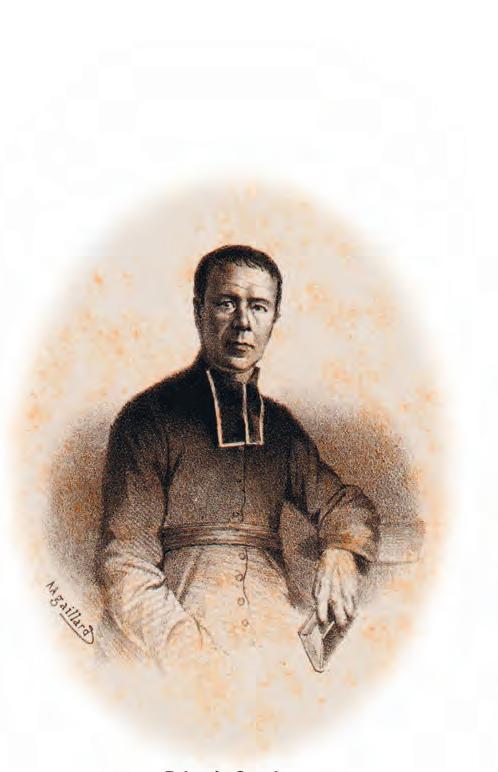
Fr. Louis Querbes
(Lithography by Gaillard – ACSV)

